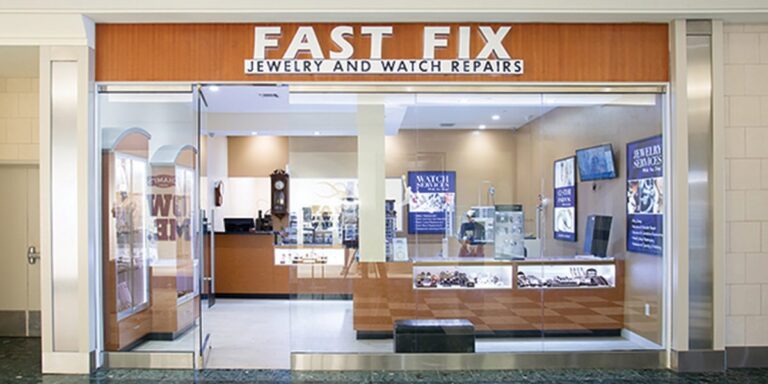Ace Hardware Franchise FDD, Profits & Costs (2025)

Ace Hardware, founded in 1924, is the largest retailer-owned hardware cooperative in the world. Its headquarters are in Oak Brook, Illinois, with distribution centers across the U.S. and internationally in China, Panama, and the UAE.
The company began franchising in 1976, offering a wide range of products, including lawn care, paint, hardware, and home improvement items.
Ace Hardware sets itself apart with a localized business model. Each franchise is tailored to meet local community needs, providing a personalized shopping experience that aligns with regional preferences.
Initial Investment
How much does it cost to start a Ace Hardware franchise? It costs on average between $116,000 – $1,913,000 to start a Ace Hardware franchised store.
This includes construction, equipment, inventory, and initial operating expenses. The exact amount depends on various factors, including the type of store you choose, the location, and whether the franchisee chooses to lease or purchase the property. Ace Hardware offers 2 types of franchises:
| Type of Store | Initial Investment Range |
|---|---|
| New Ace Hardware® store (leased premises) | $579,350 to $1,913,080 |
| Conversion to an Ace Hardware® store | $115,600 to $1,094,230 |
We are summarizing below the main costs associated with opening a New Ace Hardware® store (leased premises) franchise. For more information on the various types of franchises and its costs, refer to the Franchise Disclosure Document (Item 7).
| Type of Expenditure | Amount (Start-Up Business – Leased Premises) |
|---|---|
| Initial Franchise Fee – Affiliation Fee | $5,000 |
| Capital Stock Subscription | $5,000 |
| Advertising – Initial Brand Assessment | $6,000 – $12,000 |
| Exterior Signage | $10,000 – $30,000 |
| Leasehold Improvements – Store Planning, Interior Décor, Consolidated fixtures, Furniture and Other Fixtures | $103,000 – $201,000 |
| Store Set Up Labor | $30,000 – $120,000 |
| Equipment | $91,000 – $138,000 |
| Rent – First 3 months’ rent and security deposit | $21,000 – $107,000 |
| Prepaid Expenses – Dues, Permits, Subscriptions, utilities (deposits may be refundable) and other prepaid expenses | $3,000 – $15,000 |
| Opening Inventory | $210,000 – $1,000,000 |
| Initial Supplies | $3,000 – $7,500 |
| Insurance | $2,500 – $30,000 |
| New Investor Retail Training | $0 – $38,000 |
| Additional Funds – Working capital for the first 90 days | $90,000 – $205,000 |
| Total of Estimated Initial Investment | $579,000 – $1,913,000 |
Ace Hardware Franchise Disclosure Document
Frequently Asked Questions
How many Ace Hardware locations are there?
According to the latest data, Ace Hardware operates over 5,800 locations worldwide. Most of these stores are franchise-owned, with around 200 company-owned stores.
This makes Ace Hardware primarily a franchise-based network, with the majority of stores independently owned and operated.
What is the total investment required to open a Ace Hardware franchise?
The total investment required to open a Ace Hardware franchise ranges from $579,000 – $1,913,000 for the New Ace Hardware® store (leased premises).
What are the ongoing fees for a Ace Hardware franchise?
Ace Hardware does not charge a traditional royalty fee. Instead, it operates under a profit-sharing model where store owners share in the cooperative’s profits, receiving distributions at the end of the fiscal year.
Additionally, franchisees are required to pay a national advertising fee, which typically ranges from 1% to 3% of gross sales. This fee supports both national and regional advertising initiatives aimed at promoting the Ace Hardware brand across all markets.
What are the financial requirements to become a Ace Hardware franchisee?
To become an Ace Hardware franchisee, you must meet certain financial requirements. The minimum net worth required is $400,000, along with at least $250,000 in liquid assets.
These financial criteria ensure that prospective franchisees have the capital needed to cover startup costs, inventory, and ongoing expenses associated with running an Ace Hardware store, which can range from $579,000 to over $1.9 million depending on the store type and location.
Who owns Ace Hardware?
Ace Hardware is a cooperative owned by its independent store owners. Unlike traditional franchise models, where a corporate entity owns and controls the brand, Ace Hardware operates as a retailer-owned cooperative. This means that the individual store owners are also shareholders of the Ace Hardware Corporation.
Disclaimer
Disclaimer: This content has been made for informational and educational purposes only. SharpSheets is an independent educational resource and is not affiliated with, endorsed by, or representing any franchisor mentioned on this website. Where noted, figures are taken from the franchisor’s Franchise Disclosure Document (FDD). In some cases, we may provide independent calculations or estimates based on publicly available information. We do not make any representation or warranties with respect to the accuracy, applicability, fitness, or completeness of the information presented in the article. You should not construe any such information or other material as legal, tax, investment, financial, or other professional advice. Nothing contained in this article constitutes a solicitation, recommendation, endorsement, advertisement, or offer to buy or sell any franchises, securities, or other financial instruments in this or in any other jurisdiction in which such solicitation or offer would be unlawful under the franchise and/or securities laws of such jurisdiction.
All content in this article is information of a general nature and does not address the detailed circumstances of any particular individual or entity. Nothing in the article constitutes professional and/or financial and/or legal advice, nor does any information in the article constitute a comprehensive or complete statement of the matters discussed or the law relating thereto. You alone assume the sole responsibility of evaluating the merits and risks associated with the use of any information or other content in this article before making any decisions based on such information or other content.




